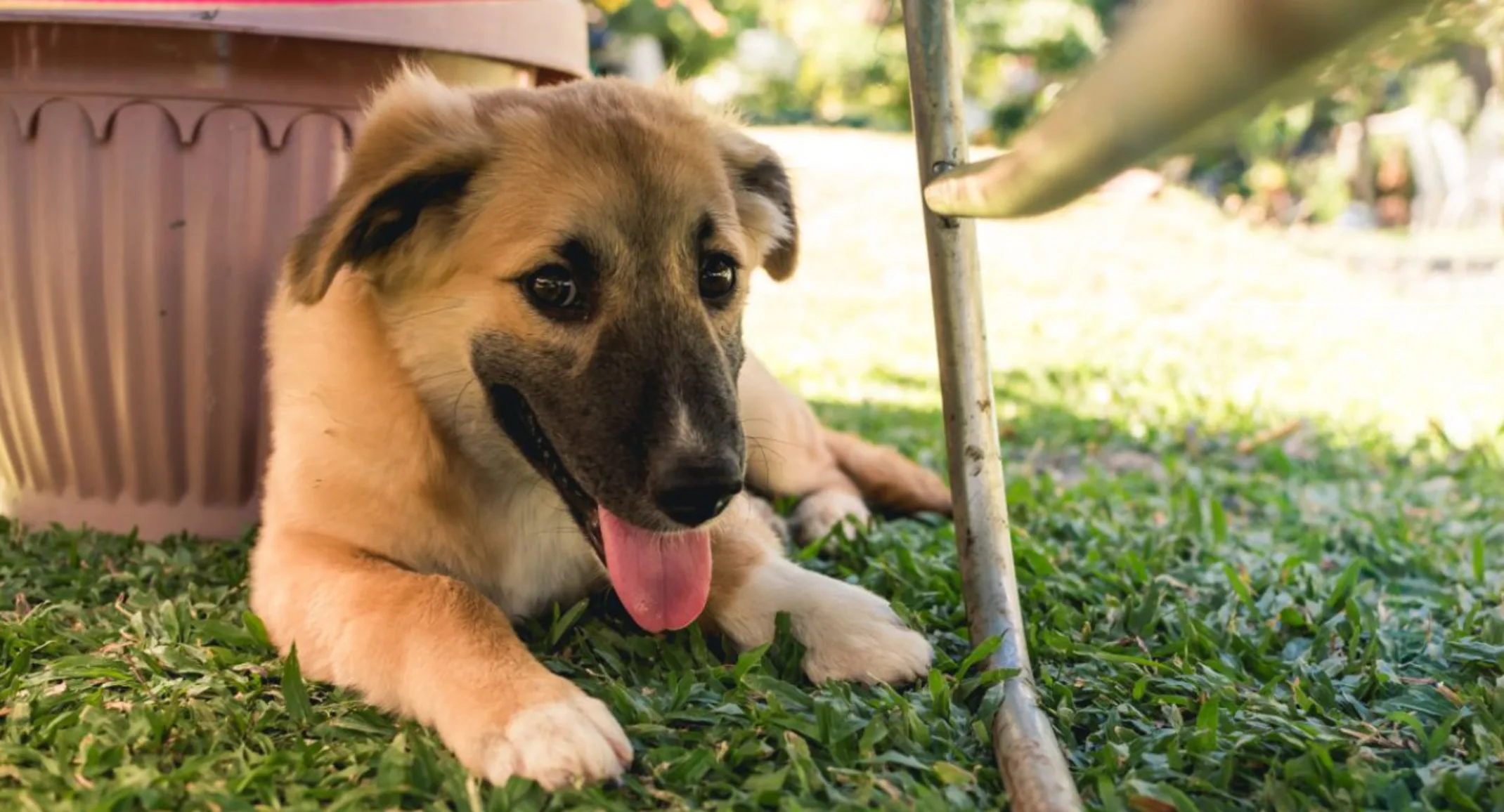Why is My Dog’s Poop Yellow in Chicago, IL?
Dogs

The color of your dog’s stool can change for various reasons. They may have eaten something that was not a food item or something yellow or have irritable bowel syndrome. You may have recently made changes in your pup’s diet that did not agree with them.
Yellow dog poop is not normal, but there is no need to panic. Check out this enlightening article to find out more about why your dog’s poop is yellow.
WHAT IS BILE?
Yellow poop may not be the only problem that occurs in dogs. Your dog can also throw up yellow bile if they are not feeling well. Any color yellow associated with bile or poop signifies that something is amiss. Bile is necessary because it breaks down fats into fatty acids, which travel to the body through the digestive tract.
Bile is fabricated in the liver and transported to the gallbladder. After your dog eats, the gallbladder releases the bile into the gut. When the food moves into the small intestine, the bile is then sent back to the liver to be cleaned, and the liver sends it back to the gallbladder.
There are certain conditions in which the bile does not have time to go back to the liver:
Diarrhea
Food intolerance
Gastroenteritis
Inflammatory bowel disease
Pancreatitis
Anything that irritates the gut has the proclivity to trigger inflammation or spasm and speed up gut transit time. Less common reasons for bile not getting sent back to the liver include cancer, liver disease, and gallbladder issues.
WHAT ARE THE POTENTIAL CAUSES OF YELLOW STOOL IN DOGS?
Stool changes are commonplace in a dog’s life. However, yellow stool may be caused by an illness. Yellow stool in dogs varies in shades from dull mustard-colored brown to bright yellow. The most frequent reason why your dog has yellow stool is food intolerance. However, there are many possible reasons why your dog’s poop could be yellow:
EATING SOMETHING YELLOW
Ingestion of a foreign object can cause your pup serious harm. They may get a bowel obstruction and require surgery. Your pup could have gotten a hold of your kid’s yellow crayon and eaten it, and the item had to be passed through your dog’s stool. The yellow color would be dispersed arbitrarily instead of dying the stool uniformly yellow.
The ingestion of a yellow crayon or toy can be accompanied by a litany of problems for your dog. There may be vomiting and diarrhea in conjunction with the yellow stool. Help prevent your dog from ingesting nonfood items and keep them out of reach and away from your pup.
INTESTINAL PARASITES AND INFECTIONS
Intestinal worms can cause your pup’s stool to be yellow. Intestinal parasites and harmful infections can damage your dog’s digestive system. These infections can be:
Bacterial
Fungal
Parasitic
Viral
If the infection is not remedied, it can cause problems for your pup. If the condition is severe enough, your dog’s stool may contain blood, or it may be soft and watery, or in some cases, it may be challenging. If the intestinal infection is due to parasites, worms may be in your dog’s stool. If this is the situation, you must get your pup to the vet immediately.
GALLBLADDER PROBLEMS
A dog’s gallbladder plays an essential role in digestion and metabolism. The gallbladder supports the liver by collecting bile released by the liver. Gallbladder problems can occur due to gallbladder trauma or an obstruction. Congealed bile of the gallbladder can turn everything yellow:
Bile
Eyes
Skin
Urine
The gallbladder can be blocked by a stone or hardened bile. When the bile mixes with your pup’s stool, it turns it an unsightly shade of yellow.
PANCREATITIS
Pancreatitis arises when there is inflammation in the pancreas. The pancreas is responsible for specific hormones that regulate metabolism and glucose, which can lead to pancreatitis when it is not functioning correctly. The condition is often triggered by overeating fatty food and obesity. Some of the symptoms include:
Abdominal pain
Diarrhea
Fever
Lack of energy
Nausea
Vomiting
Loss of appetite is another frequent symptom of the illness. Yellow stool is also associated with the illness.
GASTROENTERITIS
Gastroenteritis is inflammation of the intestinal system, which includes the stomach and the intestines. The cause of gastroenteritis is vast and can include everything from infections to a bad reaction to a new food or medication. Most dogs with gastroenteritis will experience recurring episodes of vomiting and diarrhea. Yellow stool is another hallmark of the illness.
IRRITABLE BOWEL SYNDROME
Dogs with irritable bowel syndrome often have a yellow stool or yellow mucus coating their poop. It is triggered by chronic inflammation of the intestinal tract. With this condition, there are often bouts of vomiting and diarrhea that can occur intermittently. The condition must be treated quickly to prevent a serious illness from developing.
INFLAMMATORY BOWEL DISEASE
Inflammatory bowel disease is a physical abnormality in which there is the occurrence of an overgrowth of abnormal inflammatory cells. Inflammatory bowel disease can sometimes result in yellow poop. Some of the other symptoms:
Abdominal pain
Blood in stool
Diarrhea
Lack of appetite
Lack of energy
Weight loss
If any changes in your dog’s bowel habits last more than a few days, you should address the issue with your veterinarian.
LIVER PROBLEMS
Dogs who have liver problems typically develop jaundice:
Ears
Eyes
Gums
Skin
Jaundice is when there is yellowing all over. Jaundice may not alter the color of your pup’s stool but having liver problems will. Dogs can develop liver issues due to diseases, toxins, or medication. For a dog’s body to function normally, their liver must be healthy. If you see any yellow color on your dog’s body, take them to the vet immediately.
FOOD INTOLERANCE
Mustard-colored stool may indicate that your dog is experiencing a food intolerance. It can occur if you switch your pup’s food to something new. The food may contain ingredients your pup’s stomach is unfamiliar with, or they may be allergic to the new food altogether.
It could also be because you have inadvertently picked up dog food that your particular breed of dog cannot handle. Your pup’s food requirements will change throughout their life, and the food they consumed when they were younger may not be suitable for them as an adult dog.
You should read the label before serving your dog any food. Any new food changes may upset your dog’s stomach. Also, ensure that the food you are giving your pup to eat is made from quality ingredients that will benefit their health.
CONCLUSION
There can be many reasons your dog’s stool is yellow. If your dog produces yellow stool for more than two days in a row and there are other symptoms, you should take them to the veterinarian as soon as possible.
If you have any questions regarding your dog’s health, please give us a call at (773) 698-7525 or Request an Appointment. We are more than happy to help you and your pet here at Wrigleyville Veterinary Center.
